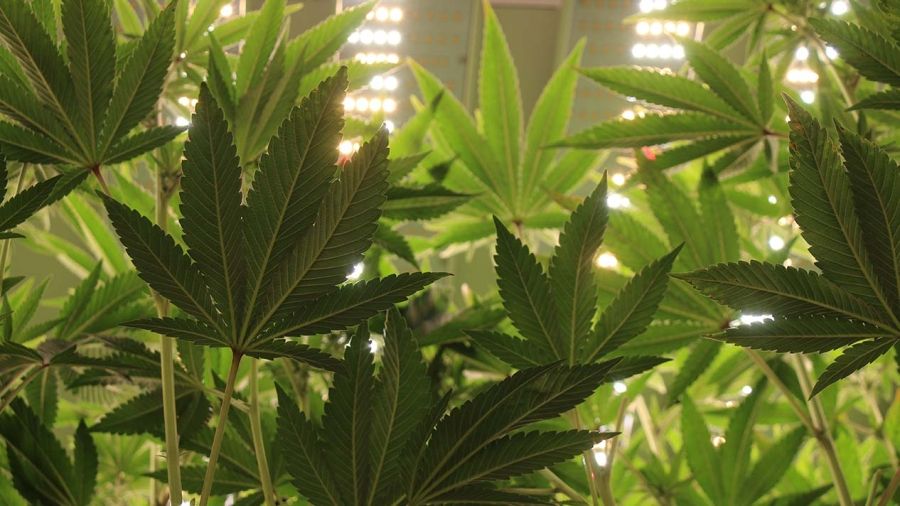
Digging deeper into understanding the barriers and opportunities for rural economic development, a Selkirk Innovates research team has embarked on a three-year project focused on outcomes that will help regional cannabis producers navigate a better future in the choppy waters of legalization.
The federal government passed the Cannabis Act in October 2018, making Canada the second country in the world to formally legalize the cultivation, sale and consumption of cannabis. The massive policy shift upended the decades-long prohibition era market in the Central Kootenay and Kootenay Boundary regions, resulting in significant uncertainty which has consequently destroyed many livelihoods.
Funded through a $360,000 grant from the federal government’s College & Community Social Innovation Fund (CCSIF), Exploring Progressive Solutions: Innovating within the Regional Cannabis Sector is a three-year project that will work with the cannabis sector, different levels of government and community supporting organizations to co-design, co-pilot and co-evaluate viable action plans.
“The goal of this project is not to get every single person on board around developing the regional industry because we understand cannabis is a substance and it is not benign,” says project director Tracey Harvey. “But it’s been such an essential economic driver to this region for decades. I hope we can work to reduce stigma and continue to support this industry that had such an important socio-economic impact on our communities.”
The four-person research team includes a student intern with work now started on a literature review, policy scan and landscape assessment. There are currently 19 regional project partners involved that include small commercial grow operations, Kootenay Rockies Tourism, Nelson & District Chamber of Commerce, Kootenay Association for Science & Technology, Regional District of Central Kootenay, Regional District of Kootenay Boundary, Kootenay Central MLA Brittny Anderson and the Craft Cannabis Association of BC.
Over the coming months, the project will bring divergent groups from the Central Kootenay and Kootenay Boundary regions together—who have a history of fragmented relations and a lack of trust—to inventory place-based regional strengths, clarify challenges and decide on the best ways forward. It will eventually develop tools, guide conversations, and identify and prioritize areas for investment and action.
“We are meeting the situation where it is at and taking an agile approach. It’s important to be flexible and adapt as we proceed over the next three years,” says Harvey.
Unlocking a New World of Research
Harvey’s entry into cannabis sector research started pre-legalization. An instructor in Selkirk College’s Geographic Information Systems (GIS) Program, the Rossland resident was on maternity leave when she began exploring ideas for a PhD. With support of college leadership, in 2017 Harvey embarked remotely in the Rural Studies Program at the University of Guelph.
“If I was going to sink my teeth into a PhD and spend all my waking hours working on a graduate research project, I wanted to do something with regional value that was important work,” says Harvey, who was a key builder of the college’s GIS Program and continued instructing while working on her academic pursuits. “I read the federal government’s task force report on legalization that was released in 2016 where they laid out what they were going to do and how they were going to do it. It felt like a huge deal that was going to be a massive shake-up for this region.”
With an academic background and career based in applied science, Harvey was taken out of her comfort zone when she embarked on social science research. Peeling back the layers of a sector where she was an outsider during a time of intense public debate regarding a substance shrouded in stigma, Harvey’s lifelong learner instincts helped her through four years of probing into a topic that had very little academic focus to that point.
After interviews with 33 cannabis sector participants and 23 government participants, Harvey’s thesis—titled Weed, Greed and the Need for Reconciliation: Cannabis Legalization and the Case of the Rural Kootenay, BC Region—was well received by her PhD advisory committee and remains a seminal piece of academic work.
“I found a lot of support and permissiveness for the regional cannabis industry at the local government level, and a lot of tension at the federal government level,” she says of her PhD studies. “To me, one of the biggest learnings in the work that I did was that federal government really viewed the cannabis industry as criminals. Instead of saying: ‘you started something, let’s figure out how to transition you into the legal regime,’ they told them to step aside and really excluded them.”
On the heels of completing her PhD in 2021, Harvey helped lead a Selkirk Innovates rural resilience project funded by Kootenay Rockies Tourism and Mitacs that identified and explored opportunities related to the development of cannabis tourism within the region. Released in July 2022, Exploring Opportunities for Cannabis Tourism in the Kootenay Rockies helped inform decisions makers about a path forward in an area that previously had very little documentation.
Emerging as a foremost expert in the field of cannabis sector research, Harvey put together the proposal for the current project. Though cannabis has been legal in Canada for seven years, the regional sector continues to face significant challenges with hefty excise taxes and fees, prohibitive economic regulations within the Cannabis Act, stigmatization and general distrust of government. Over the next three years, Harvey and her team intend to develop refocused action plans and pilot actions that will embolden the regional cannabis producers.
“One of the most exciting aspects of this project is that receiving this prestigious federal funding implicitly acknowledges the importance of supporting small farmers in the cannabis industry, and, specifically, the rural Kootenays,” says Harvey. “I really feel like this project can make a difference for the regional sector.”
Learn more about the college's research arm, Selkirk Innovates.
Sustainable Development Goal (SDG) #8: Promote sustained, inclusive and sustainable economic growth, full and productive employment and decent work for all.


